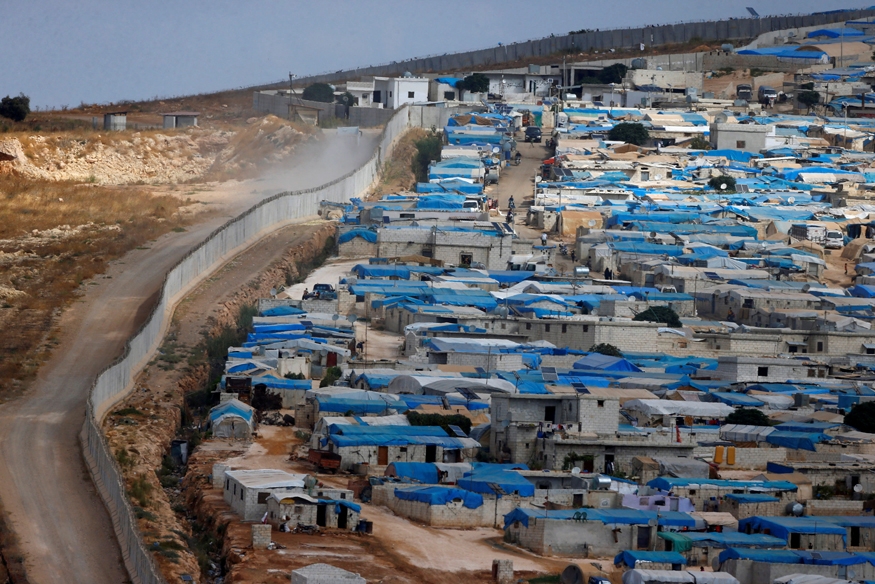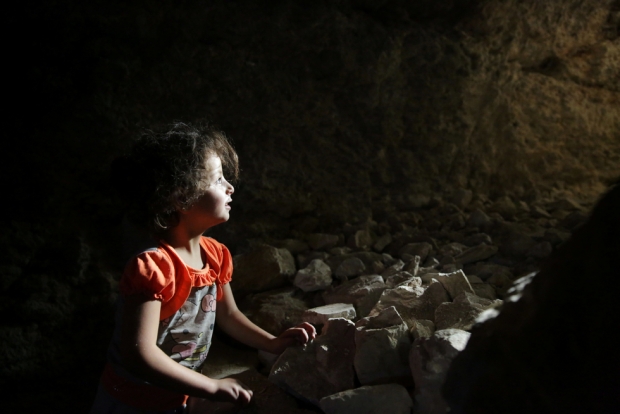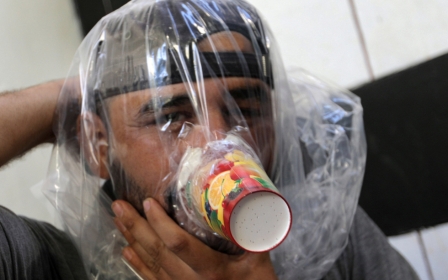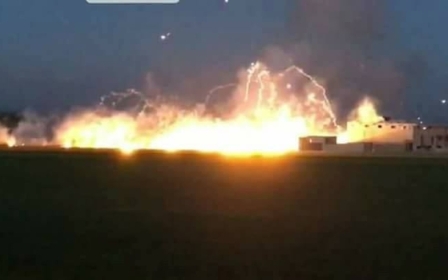Battle for Idlib: Civilians 'have nowhere to go’ as air strikes pound hospitals

Syrian aid workers have warned that an all-out government assault on Idlib will lead to a humanitarian crisis in northwestern Syria that will be "impossible to manage".
The warning comes amid fears that time is running out for around three million people living in the last remaining rebel-held area, which is expected to be the target of a major offensive by the Syrian government and its allies within days.
The UN also noted on Monday that 30,000 Syrians were displaced inside Idlib from their homes in northwest Syria after the Syrian government and allied forces resumed air and ground strikes this week.
Over the weekend, Russian and Syrian jets air strikes began again in southern Idlib, killing at least two children, according to the Syrian Civil Defence Forces (SCD).
The Union of Medical Care and Relief Organisations said that six medical and civil defence facilities, including three hospitals, had been targeted by Russian warplanes.
Rescue workers added that the hospitals targeted had served more than 20,000 people and were now unable to provide treatment for civilians injured in the new wave of attacks.
"With these hospitals now out of service, patients have to be moved to medical facilities in remote areas which are two hours drive away," Othman Ibrahim, a Syrian civil defence worker from Jarjanaz, told Middle East Eye.
"This will mean more people will die on their way to the hospital, instead of us being able to save them in the hospitals nearby."
Ibrahim added that the new wave of attacks has put "immense pressure" on the rescue volunteers in southern Idlib as many of their rescue centres had been destroyed in recent weeks.
Some [refugees] even said that they are preparing to die as Idlib is the last safe place for many of them
- Ahmed Mahmoud, Syria spokesperson for Islamic Relief
"We are under enormous pressure as the attacks are coming on a large scale over northern Syria and we don't have the capacity to cover the areas targeted," said Ibrahim.
Idlib has been a safe haven for the thousands who have fled fighting or been forcibly displaced from other areas previously held by rebels inside Syria.
Senior officials in Jordan and Lebanon have described conditions in Idlib as a "well-constructed kill box", with the majority of civilians having nowhere to go once the government takes full control.
Nowhere to go
Ahmed Mahmoud, Syria spokesperson for aid group Islamic Relief, visited Idlib last week as the government and its allies began its advance on the rebel-territory.
“You have a huge number of the population living in very difficult situations. There are not enough tents. Civilians have been living in schools, mosques, collective shelters, in any destroyed building.
“Tents have been torn off and been removed many times due to difficult weather conditions,” said Mahmoud, who was speaking to MEE from the Turkish border.
His warnings come as Turkish Red Crescent officials told MEE they feared millions were expected to seek refuge along Turkey's border with Syria.
“People are trying to settle wherever they can in the hope of being protected from the air strikes. Some have even started to move under the trees in the hope that it will save them,” said Mahmoud.
“When we speak to Syrians who have already been displaced three, five, even six times, they themselves say there is nowhere to go.
“Some even said that they are preparing to die as Idlib is the last safe place for many of them.”
Strain on resources
The imminent government assault on the whole of Idlib has raised further concerns over the pressure it will place on the area's damaged infrastructure.
Idlib’s civilian infrastructure has struggled to meet the needs of thousands who have come to the province since Syria's war began.
Heavy bombardment of civilian infrastructure, including hospitals and water wells, has further compounded the pressure on services.
“When the crisis began, there was no UN agency inside Syria to organise camps. But when the camps in Idlib were built, there was no proper planning,” said Mahmoud.
“Everyone was thinking people would be displaced for the short term. Now, these few tents near the Turkish border have grown to have a huge population.”
Mahmoud added that further displacement will make matters worse for the displaced, as aid agencies struggle to meet demand.
“Health facilities are already stretched. Islamic Relief supports more than 60 hospitals but we’re still not able to cover the huge need through our various facilities.
“Water wells have also been almost depleted by the population for various reasons. Now the main source of water is water trucks, which is costly, and from far-off locations.”
This article is available in French on Middle East Eye French edition.
New MEE newsletter: Jerusalem Dispatch
Sign up to get the latest insights and analysis on Israel-Palestine, alongside Turkey Unpacked and other MEE newsletters
Middle East Eye delivers independent and unrivalled coverage and analysis of the Middle East, North Africa and beyond. To learn more about republishing this content and the associated fees, please fill out this form. More about MEE can be found here.





